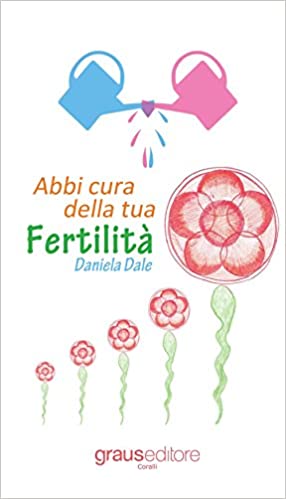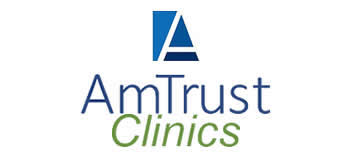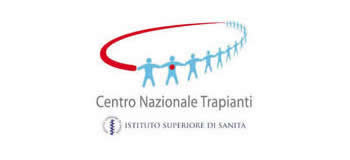Fertility prevention
Take care of your fertility
CFA is a fertility center, which through complete and integrated protocols is able to assist couples before, during and after pregnancy.
Raising awareness is fundamental for us and is the basis of our method: you have to take care of your fertility. Fertility must be preserved, even before we feel the desire for parenthood, before we may even think we could have a problem.
How? With prevention and with some attention to our lifestyle.
In fact, there are simple daily habits that sometimes compromise our happiness. Just think of smoking, alcohol, eating too much, too little and badly, leading a life that is too sedentary, being victims of stress. Finding the right balance in things is always the best way to success. Too much is too much and we know it.
Every now and then all you need to do is stop, observe yourself and ask yourself: What can I do for myself? And if you don’t want to do it, we’ll take care of it: CFA takes care of you and your fertility!
Our services
Are you thinking of embarking on an assisted reproduction journey? The first step is to book a consultation with our professionals. Every story is unique and therefore every single patient – as well as every couple – is invited to talk about their journey and their goals, in order to evaluate together what are the steps to take for a totally personalized assisted reproduction process.
With a simple blood sample we carry out hormonal analysis, i.e. the monitoring of your hormone levels in the blood. Through this examination we can identify hormonal imbalances, understand the cause and intervene with the right remedies.
The spermogram is the first laboratory test a man should undergo when infertility is suspected in the couple. It is a diagnostic test to analyze seminal fluid to evaluate the quality, number, shape and motility of spermatozoa. A spermogram is useful not only for diagnosing the state of infertility, but also as an examination for the prevention of possible pathologies.
L’ovulazione è il momento del ciclo mestruale in cui la donna raggiunge il suo massimo livello di fertilità ed è quindi pronta per il concepimento. L’ovulazione avviene circa 14 giorni prima dell’arrivo delle mestruazioni e può essere caratterizzata da alcuni sintomi come crampi addominali, aumento del volume del seno e secrezioni cervico-vaginali.
La follicogenesi, ovvero il processo di maturazione dei follicoli, inizia durante la pubertà e può avere due esiti: la morte del follicolo (o atresia) oppure l’ovulazione. La follicogenesi ha una durata ben precisa, infatti inizia con la pubertà e termina con la menopausa.
Per chi decide di intraprendere un percorso di fecondazione assistita è utile misurare la riserva ovarica, quindi analizzare quanti follicoli sono presenti nelle ovaie della donna in un determinato momento della sua vita. Età, genetica, interventi chirurgici e terapie che possono compromettere la fertilità influenzano infatti la riserva ovarica di ogni donna.
Correct nutrition can benefit fertility. A balanced diet and a healthy lifestyle help both women and men to take care of their fertility. It is no coincidence that the holistic approach to assisted reproduction, employed by CFA, also includes personalized advice by our nutritionist, whose advice accompanies the couples throughout their journey in search of a child.
Hysteroscopy is an endoscopic procedure that allows you to diagnose some pathologies of the uterine cavity. The examination takes place in the clinic and consists in observing the inside of the uterus through a hysteroscope, equipped with a camera, that allows to us identify malformations of the uterus or the presence of polyps, fibroids or tumours. Hysteroscopy is very useful for understanding the cause of infertility and is therefore usually recommended for women who want to embark in assisted fertilization.
La sindrome dell’ovaio policistico (conosciuta anche come PCOS) purtroppo rientra tra le principali cause di infertilità femminile, ma non tutti i sintomi sono riconducibili a questa patologia. Vediamo insieme i più comuni:
● il primo campanello d’allarme è sicuramente l’irregolarità del #ciclo
● spesso ci si accorge di avere questa sindrome nel momento in cui si prova ad avere un #figlio, ma ciò non avviene
● in molti casi si riscontra un immotivato aumento di peso
● sono comuni squilibri ormonali che causano #acne e #peluria anche su viso e petto
È molto importante non ignorare questi sintomi, ma parlarne col proprio #ginecologo per essere indirizzati
verso i giusti #trattamenti.
La crioconservazione degli ovociti è un regalo che puoi fare alla te stessa del futuro, quella donna che ancora non conosci e che un giorno avrà sogni probabilmente molto diversi da quelli che hai oggi. Il social freezing ti permette di congelare ora gli ovociti di cui potresti aver bisogno tra qualche anno, quando avere un bambino rientrerà tra i tuoi principali desideri.
Col passare del tempo gli ovuli diminuiscono infatti sia in qualità che in quantità: conservare quelli che hai
oggi, con la possibilità di scongelarli al momento giusto, può rappresentare un grande dono da fare a te
stessa.
Cryopreservation of semen is a procedure by which male gametes are collected and kept in a special container of liquid nitrogen for a short or long period of time, so that they can be thawed and used in assisted fertilization techniques in the future. Semen cryopreservation is of interest to patients undergoing oncological therapies that can compromise fertility over time, patients with pathologies that can lead to azoospermia or even patients who intend to preserve a future paternity, without risking the loss of testicular function due to unforeseen events that may occur in the course of life.
During a menstrual cycle, the ovary normally produces only one mature oocyte for ovulation. In order to improve chances of a pregnancy, ART procedures require a protocol of ovarian stimulation, with naturally occurring hormones, generally FSH, to generate several mature oocytes. There are many general protocols for stimulation using different hormones, but in all cases the actual protocol depends on the age and physiology of the woman and the type of ART procedure to be used.
There are three types of pharmaceuticals used for ovarian stimulation:
1. Gonadotrphins
2. Agonists and antagonists of GnRH
3. Different triggers to induce ovulation such as hCG.
Ovarian stimulation with FSH is usually performed by daily sub-cutaneous injections of FSH lasting 9-12 days.
When choosing to embark in ART, both partners need psychological support. In fact, we must not underestimate the effect that stress can have, not only in the presence of any IVF failure, but also during the entire period of examinations and treatments to which one undergoes before the transfer. At CFA, our patients are supported by our pscychologists from the first consultation to the realization of their dream of parenthood.
Raising awareness is fundamental for us and is the basis of our method: you have to take care of your fertility. Fertility must be preserved, even before we feel the desire for parenthood, before we may even think we could have a problem.
How? With prevention and with some attention to our lifestyle.
In fact, there are simple daily habits that sometimes compromise our happiness. Just think of smoking, alcohol, eating too much, too little and badly, leading a life that is too sedentary, being victims of stress. Finding the right balance in things is always the best way to success. Too much is too much and we know it.
Every now and then all you need to do is stop, observe yourself and ask yourself: What can I do for myself? And if you don’t want to do it, we’ll take care of it: CFA takes care of you and your fertility!
Our services
Are you thinking of embarking on an assisted reproduction journey? The first step is to book a consultation with our professionals. Every story is unique and therefore every single patient – as well as every couple – is invited to talk about their journey and their goals, in order to evaluate together what are the steps to take for a totally personalized assisted reproduction process.
With a simple blood sample we carry out hormonal analysis, i.e. the monitoring of your hormone levels in the blood. Through this examination we can identify hormonal imbalances, understand the cause and intervene with the right remedies.
The spermogram is the first laboratory test a man should undergo when infertility is suspected in the couple. It is a diagnostic test to analyze seminal fluid to evaluate the quality, number, shape and motility of spermatozoa. A spermogram is useful not only for diagnosing the state of infertility, but also as an examination for the prevention of possible pathologies.
L’ovulazione è il momento del ciclo mestruale in cui la donna raggiunge il suo massimo livello di fertilità ed è quindi pronta per il concepimento. L’ovulazione avviene circa 14 giorni prima dell’arrivo delle mestruazioni e può essere caratterizzata da alcuni sintomi come crampi addominali, aumento del volume del seno e secrezioni cervico-vaginali.
La follicogenesi, ovvero il processo di maturazione dei follicoli, inizia durante la pubertà e può avere due esiti: la morte del follicolo (o atresia) oppure l’ovulazione. La follicogenesi ha una durata ben precisa, infatti inizia con la pubertà e termina con la menopausa.
Per chi decide di intraprendere un percorso di fecondazione assistita è utile misurare la riserva ovarica, quindi analizzare quanti follicoli sono presenti nelle ovaie della donna in un determinato momento della sua vita. Età, genetica, interventi chirurgici e terapie che possono compromettere la fertilità influenzano infatti la riserva ovarica di ogni donna.
Correct nutrition can benefit fertility. A balanced diet and a healthy lifestyle help both women and men to take care of their fertility. It is no coincidence that the holistic approach to assisted reproduction, employed by CFA, also includes personalized advice by our nutritionist, whose advice accompanies the couples throughout their journey in search of a child.
Hysteroscopy is an endoscopic procedure that allows you to diagnose some pathologies of the uterine cavity. The examination takes place in the clinic and consists in observing the inside of the uterus through a hysteroscope, equipped with a camera, that allows to us identify malformations of the uterus or the presence of polyps, fibroids or tumours. Hysteroscopy is very useful for understanding the cause of infertility and is therefore usually recommended for women who want to embark in assisted fertilization.
La sindrome dell’ovaio policistico (conosciuta anche come PCOS) purtroppo rientra tra le principali cause di infertilità femminile, ma non tutti i sintomi sono riconducibili a questa patologia. Vediamo insieme i più comuni:
● il primo campanello d’allarme è sicuramente l’irregolarità del #ciclo
● spesso ci si accorge di avere questa sindrome nel momento in cui si prova ad avere un #figlio, ma ciò non avviene
● in molti casi si riscontra un immotivato aumento di peso
● sono comuni squilibri ormonali che causano #acne e #peluria anche su viso e petto
È molto importante non ignorare questi sintomi, ma parlarne col proprio #ginecologo per essere indirizzati
verso i giusti #trattamenti.
La crioconservazione degli ovociti è un regalo che puoi fare alla te stessa del futuro, quella donna che ancora non conosci e che un giorno avrà sogni probabilmente molto diversi da quelli che hai oggi. Il social freezing ti permette di congelare ora gli ovociti di cui potresti aver bisogno tra qualche anno, quando avere un bambino rientrerà tra i tuoi principali desideri.
Col passare del tempo gli ovuli diminuiscono infatti sia in qualità che in quantità: conservare quelli che hai
oggi, con la possibilità di scongelarli al momento giusto, può rappresentare un grande dono da fare a te
stessa.
Cryopreservation of semen is a procedure by which male gametes are collected and kept in a special container of liquid nitrogen for a short or long period of time, so that they can be thawed and used in assisted fertilization techniques in the future. Semen cryopreservation is of interest to patients undergoing oncological therapies that can compromise fertility over time, patients with pathologies that can lead to azoospermia or even patients who intend to preserve a future paternity, without risking the loss of testicular function due to unforeseen events that may occur in the course of life.
During a menstrual cycle, the ovary normally produces only one mature oocyte for ovulation. In order to improve chances of a pregnancy, ART procedures require a protocol of ovarian stimulation, with naturally occurring hormones, generally FSH, to generate several mature oocytes. There are many general protocols for stimulation using different hormones, but in all cases the actual protocol depends on the age and physiology of the woman and the type of ART procedure to be used.
There are three types of pharmaceuticals used for ovarian stimulation:
1. Gonadotrphins
2. Agonists and antagonists of GnRH
3. Different triggers to induce ovulation such as hCG.
Ovarian stimulation with FSH is usually performed by daily sub-cutaneous injections of FSH lasting 9-12 days.
When choosing to embark in ART, both partners need psychological support. In fact, we must not underestimate the effect that stress can have, not only in the presence of any IVF failure, but also during the entire period of examinations and treatments to which one undergoes before the transfer. At CFA, our patients are supported by our pscychologists from the first consultation to the realization of their dream of parenthood.







